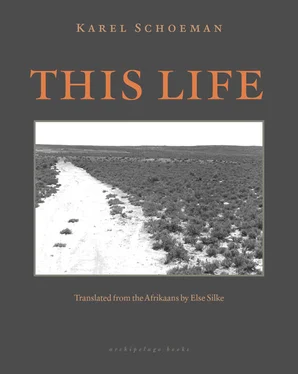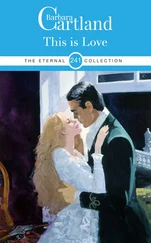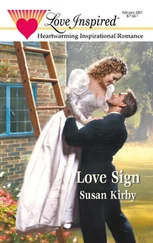Karel Schoeman - This Life
Здесь есть возможность читать онлайн «Karel Schoeman - This Life» весь текст электронной книги совершенно бесплатно (целиком полную версию без сокращений). В некоторых случаях можно слушать аудио, скачать через торрент в формате fb2 и присутствует краткое содержание. Год выпуска: 2015, ISBN: 2015, Издательство: Archipelago, Жанр: Современная проза, на английском языке. Описание произведения, (предисловие) а так же отзывы посетителей доступны на портале библиотеки ЛибКат.
- Название:This Life
- Автор:
- Издательство:Archipelago
- Жанр:
- Год:2015
- ISBN:978-0-914671-16-9
- Рейтинг книги:5 / 5. Голосов: 1
-
Избранное:Добавить в избранное
- Отзывы:
-
Ваша оценка:
- 100
- 1
- 2
- 3
- 4
- 5
This Life: краткое содержание, описание и аннотация
Предлагаем к чтению аннотацию, описание, краткое содержание или предисловие (зависит от того, что написал сам автор книги «This Life»). Если вы не нашли необходимую информацию о книге — напишите в комментариях, мы постараемся отыскать её.
considers both the past and future of the Afrikaner people through four generations of one family. In an elegiac narrator's tone, there is also a sense of compulsion in the narrator's attempts to understand the past and achieve reconciliation in the present. This Life is a powerful story partly of suffering and partly of reflection.
This Life — читать онлайн бесплатно полную книгу (весь текст) целиком
Ниже представлен текст книги, разбитый по страницам. Система сохранения места последней прочитанной страницы, позволяет с удобством читать онлайн бесплатно книгу «This Life», без необходимости каждый раз заново искать на чём Вы остановились. Поставьте закладку, и сможете в любой момент перейти на страницу, на которой закончили чтение.
Интервал:
Закладка:
Passion and obsession — these probably remain the best words. And later, so many years later, when she was old and dying? In her old age the strain or tension remained, for over the years it had become part of her and it was too late for her to change, even if she had deemed it necessary, but then, right at the end of her life, that obsessiveness disappeared, as if that distant goal had been attained and all that she had striven for had been fulfilled. Was that then what she had desired all those years, without ever knowing it clearly herself: the money and the farms and the town house, Maans’s education and his stylish young wife, her own status in the small community as Father’s widow, the seat in the front row at church, the cape embroidered with glittering jet? Had it all been for that then, the unyielding ambition over the years, and the pride to the bitter, silent end?
Does this say something more about Mother?
There are two more things I know of her, two things from the time before I knew her myself, from a past about which she herself never mentioned a word. After her funeral, when the mourners came to our town house for coffee, I heard one of the young men in conversation with Oom Koos van Wyk ask whether she had also been from these parts. “No,” Oom Koos replied, “her people trekked around in the Karoo.” He said it in passing, like something of no importance or interest to anyone, unaware that I was listening, and he added nothing further to the remark, unaware that I was waiting, transfixed, to hear more, and now he is long dead, he and all his contemporaries who might have had similar information; and so it is all I have left, that single sentence and the almost contemptuous manner in which it was uttered; that, and a fragment from my own childhood memories, an image which has survived in spite of my being unable to place it in context, so that it must remain standing, uncertain and unclear as I remember it.
It was one winter when we were down in the Karoo, and I was quite young, though I am unable to say how old I was; I do not even remember whether Maans had been born yet and whether Jakob and Pieter were still with us. Only this solitary image has remained: how a trekboer company arrived at our winter quarters one day with a rickety cart, a few thin dogs and a flock of scabby sheep, and we were told it was Oom Ruben, Mother’s brother. Where he and his family had come from, where they were going, how they had found us and what the reason was for their visit, of that I know nothing, and all I have retained is the image of the forlorn little group of trekkers in the sunshine of the winter’s day, the woman gazing out from under the tented hood as if she were not expecting any welcome, the shy, neglected children, and the man with the wild, black beard and Mother’s dark, flashing eyes, deep in their sockets like hers; but, above all, it is Mother herself I recall, how she and this strange man greeted each other without any display of affection or even recognition, as if these were strangers who had arrived here at our stand, and how they surveyed each other warily and suspiciously from a distance, as if they knew and understood each other too well to put any trust in the other. I do not think it was a long visit or that there was much conversation: the visitor got whatever it was he had come for — money, I suppose — and then the whole strange, bedraggled company turned around and disappeared among the geelbos and thorn trees as they had come, and never was there a single mention of them or their visit, nor did I ever hear of them again.
Is this, therefore, the world Mother came from? I wonder now, looking back and remembering: the daughter of a family who moved with their stock from fountain to fountain and from farm to farm in search of a temporary stand, tolerated by the white people, despised by the coloured people, a half-wild group of drifters and hunters as still existed in the interior in those days, trekking around in the Karoo, as Oom Koos had said where he sat having coffee in our town house after her funeral. Oom Ruben and Oupa Adam — yes, where do those memories spring from all of a sudden, like echoes from the bottom of a well, things I did not even know I remembered any more? Father laboriously entering Maans’s date of birth in our family Bible with the scratchy, messy quill pen, and Sofie standing behind his chair, watching, and asking whether Pieter had also received his grandfather’s name. “No,” Father replied, “his grandfather’s name was Adam, but we did not feel it was a proper name for a child.” He was referring to Mother’s father, the grandfather after whom Pieter, as the second son, should have been named. Adam and Ruben — Biblical names — who was it that had decided against it? Perhaps Mother herself, who had preferred to forget the names and the world from which they came, or perhaps Ouma, who had still been alive then, Ouma from the Bokkeveld with her wall-cupboards and her china? But if this were all so, how did it happen then that Father married Mother and brought her here, and how did they live here together all those years, with Father and Mother in the first house and Oupa and Ouma in the new homestead? Dulsie would have known, but she is dead too, and the little information she had ever disclosed had been so sketchy and confused that I would not have been able to compose any answer from what I remembered of it. Now I would never know; never would I be able to come closer to the truth than with that single memory of Oom Ruben and his shy, withdrawn family with their wary eyes who had slunk out of our lives like scraggy wolves to some distant and unknown destination; Oupa Adam and Oom Ruben with their rickety wagons and their old rifles, silent men with deepset black eyes.
At the time my earliest memories of Mother begin, she must have been around forty: her date of birth can be seen in the family Bible in Maans’s house and on the big white stone in the village graveyard that had been erected for her by Maans, and for now one would still be able to look it up if it were important. I do not remember these things any more. At the time, she had already been married for more than twenty years and whatever objections or misgivings there might once have existed concerning her marriage had been removed by the deaths of Oupa and Ouma; she and Father had moved across to the new house with its wall-cupboards and its four-poster bed and had had it extended for their family, and there was no one to contest or threaten her possession of it.
Though Father may not have inherited much, as Oom Herklaas maintained, it must have been sufficient, and with time his wealth had increased; though he was not a rich man, we might have been described as well-off. We never knew any real hardship, not even in times of drought or in years when the migrant herds of antelope, the locusts or the frost caused severe damage: there was always enough food — mutton or venison, with samp or rice, fruit, fresh or dried, if the frost had not ruined the blossoms, milk and butter in summer, and sometimes even bread, for we had a field where Father could sow some wheat. There were enough clothes, enough candles; there were skin-blankets and down quilts against the cold, and firewood that had been brought from the Karoo by wagon; the solid house with its thatched roof and its shutters provided shelter. Even so, though there may always have been enough, in those years there was hardly ever much more than barely enough: with unwearied attention Mother kept the keys and locked and unlocked, measured and weighed the supplies, and patched, altered and remade our clothes; no candle was ever lit unnecessarily or allowed to burn too long and not an extra log or branch was put on the fire.
We children accepted it like that, for we were not used to anything else, and where we lived in such isolation in a bare and harsh world, it was necessary to be cautious but, looking back now, I have to wonder whether her reaction had not been extreme, driven by that familiar stubbornness. Why else do I remember so few visitors from my childhood and did I get the feeling later that people from the district avoided our house; why did they have to be lured with such difficulty to attend the dance when Jakob was married and again, years later, the dance when Maans came of age? The Roggeveld was sparsely populated and the roads were bad, so that not many people paid social visits, but travellers between the Karoo and the Roggeveld, the Karoo and the Hantam, over Vloksberg, passed quite close to us; why did so few of them stop there in those years unless they were forced to come and fill their water barrels? Did they notice that the hospitality shown them was duty-bound and guarded, and that every morsel they ate and every stub of candle that had to be lit for them were noted and every barrel of water was conceded with ill-concealed reluctance? — by Mother, I have to add, not by Father; never by Father. When neighbours rode over for advice or help, they were likewise not encouraged to stay, and I cannot remember the wives often accompanying their husbands to call on Mother: they, too, would soon have discovered that their arrival was greeted without warmth and that no effort was made to delay their departure; they, too, would have felt the reserve and lack of cordiality with which Mother usually received outsiders, and in the increasingly uncomfortable silence around the big table in the voorhuis they would have realised that every spoonful of tea was being measured out unwillingly and every lump of sugar they used was resented. For as much as the people of our district called on each other, we had no part in their social interaction, and the gatherings on neighbouring farms were seldom attended by us. Only later did things start to change, when Maans came of age and got married, when the town house was built, and when Mother took her seat among the wives of the elders in the front row at church, to hold it until her death. All that, though, was much later.
Читать дальшеИнтервал:
Закладка:
Похожие книги на «This Life»
Представляем Вашему вниманию похожие книги на «This Life» списком для выбора. Мы отобрали схожую по названию и смыслу литературу в надежде предоставить читателям больше вариантов отыскать новые, интересные, ещё непрочитанные произведения.
Обсуждение, отзывы о книге «This Life» и просто собственные мнения читателей. Оставьте ваши комментарии, напишите, что Вы думаете о произведении, его смысле или главных героях. Укажите что конкретно понравилось, а что нет, и почему Вы так считаете.












